I find it difficult to talk about the place I came from in a way that makes it sound exciting to people who’ve never lived there. Everywhere I look, it’s the same old boring thing I’ve seen a million times. It’s the same street I’ve passed, the same building I’ve seen, the same sidewalk I’ve walked, the same place I’ve been calling home for a quarter of a century. Honestly, I think I would be able to talk about my things with more enthusiasm than talking about my home.I mean, what else can I say about it that would make it seem appealing to others? After all, it was all I’ve known for the majority of my life. It’s just boring to me.
Well, I guess I can talk about the local delicacies. Food is a way to a person’s heart after all. I think that’s how the saying goes. I don’t know. I need a drink to stimulate my senses. Something like a cup of hot coffee.
Kapeng Barako
Coffee is an integral part of the days of many working adults in this day and age. To some, it is their figurative lifeblood keeping them going throughout the day. So, like a depressed salaryman going to the office on a sweltering Monday, I set out early in the morning to search for coffee. However, instead of a Starbucks, I went to a local market and, instead of an espresso or a macchiato, I looked for kapeng barako. For the laymen or non-Batanguenos, kapeng barako or “Batangas Coffee” is a variety of coffee that is grown around the Batangas and Cavite regions. Due to its strong flavor and aroma, it was named after the very masculine Filipino term for stud, “barako”.
Now, you’re probably wondering, why go to the local market to buy kapeng barako?
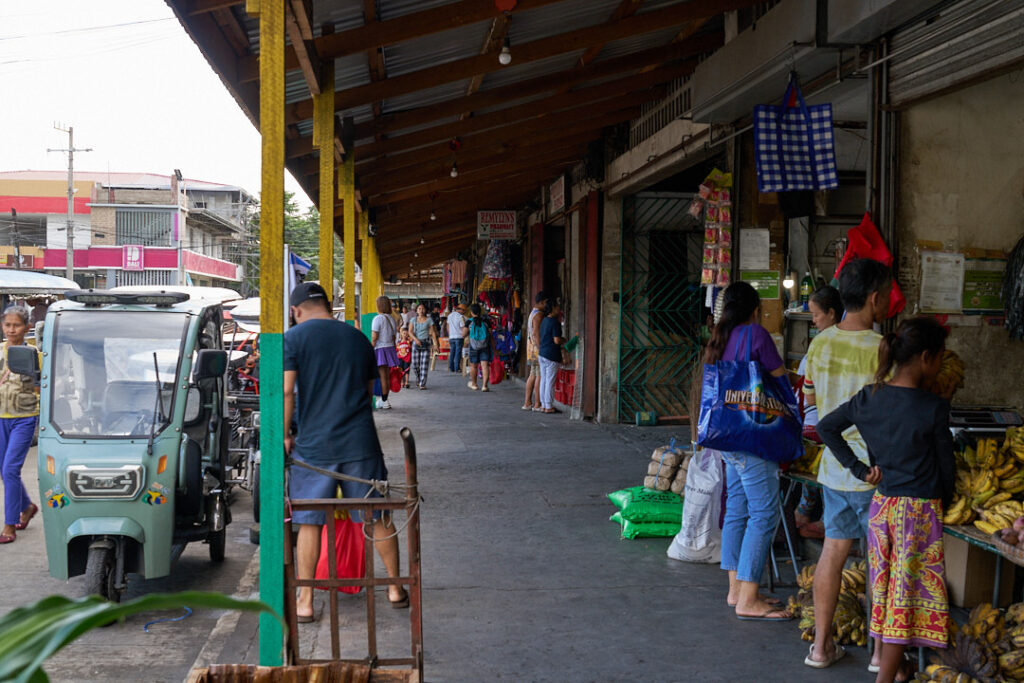
Why not go to a local cafe to buy some brewed kapeng barako? Well, firstly, I am not a coffee person so I do not know which coffee shops sell them. Secondly, there’s a stall in the local market which grinds their coffee beans and packs the ground on the spot. Lastly, my family has a long history in the market reaching the time of my great-grandparents. The local market is the place where my grandparents, particularly my grandmother, worked for the majority of their lives. It’s where my family usually buys fresh produce and fish. It’s a part of our lives and it’s also a great place to buy freshly ground kapeng barako.
In a small stall named “Sinag Isabel”, an old couple greets my mom and I as we give them our order: two kilos of Kapeng Barako.
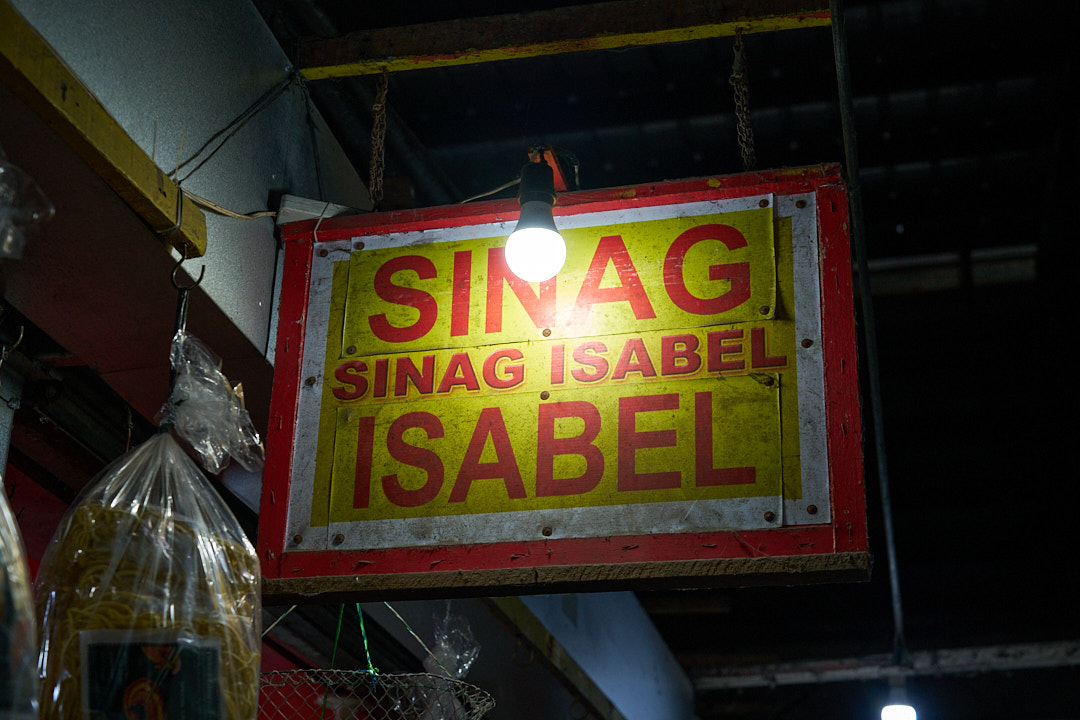
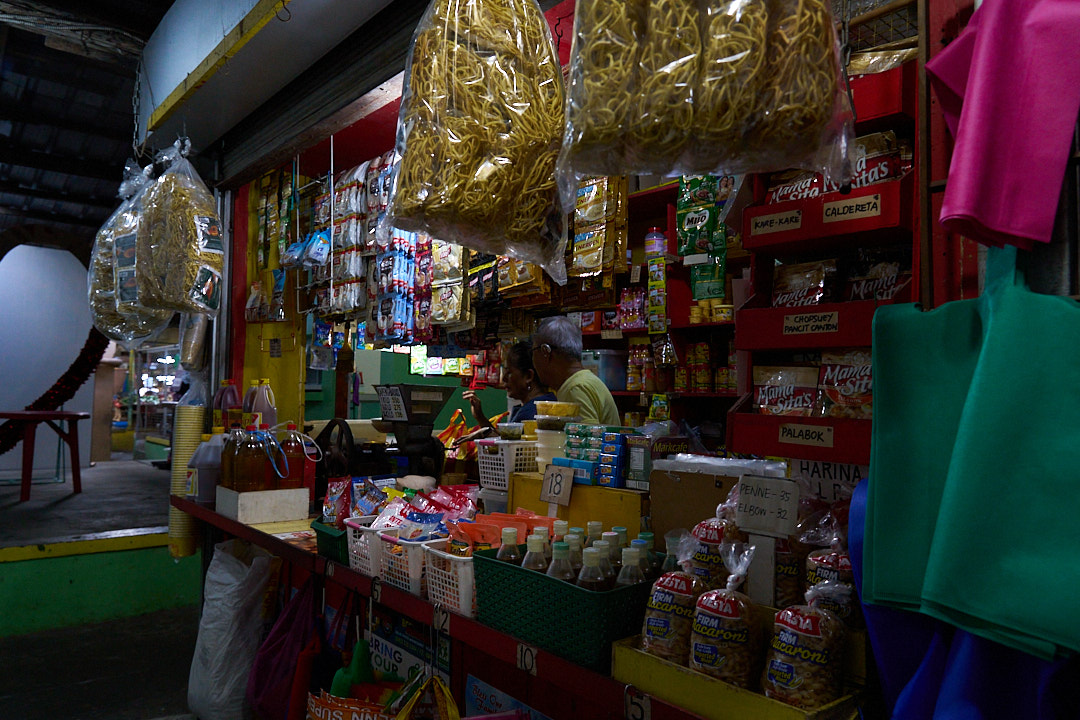
The old lady uses a metal dish to scoop beans off of a container and pours them into a grinder.
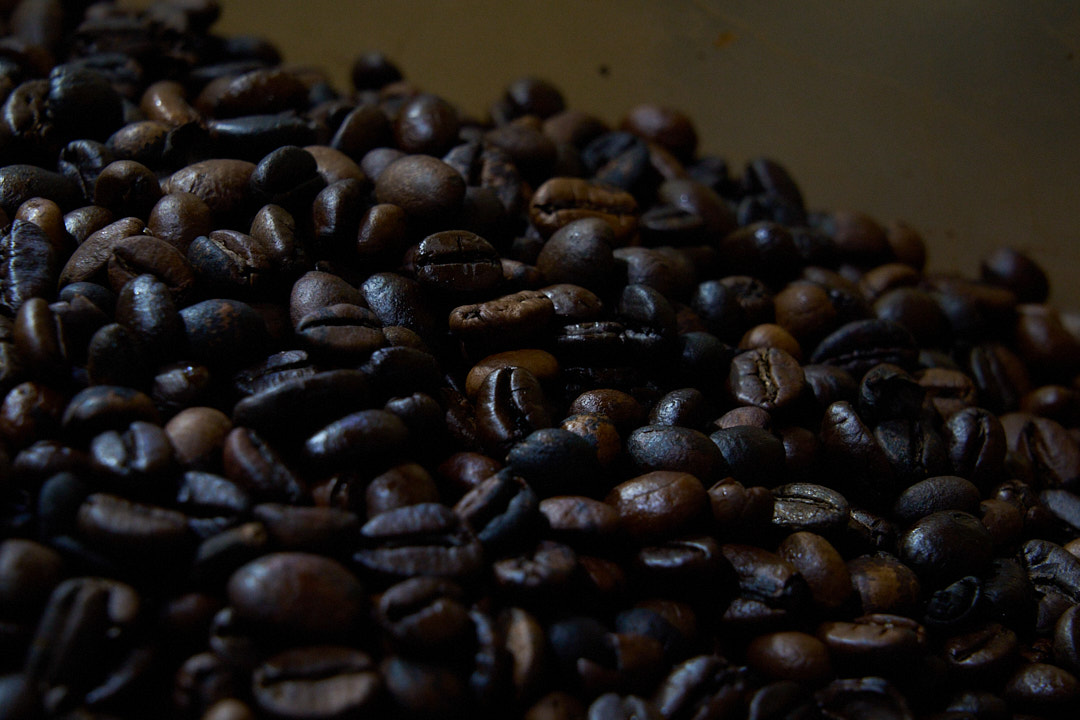
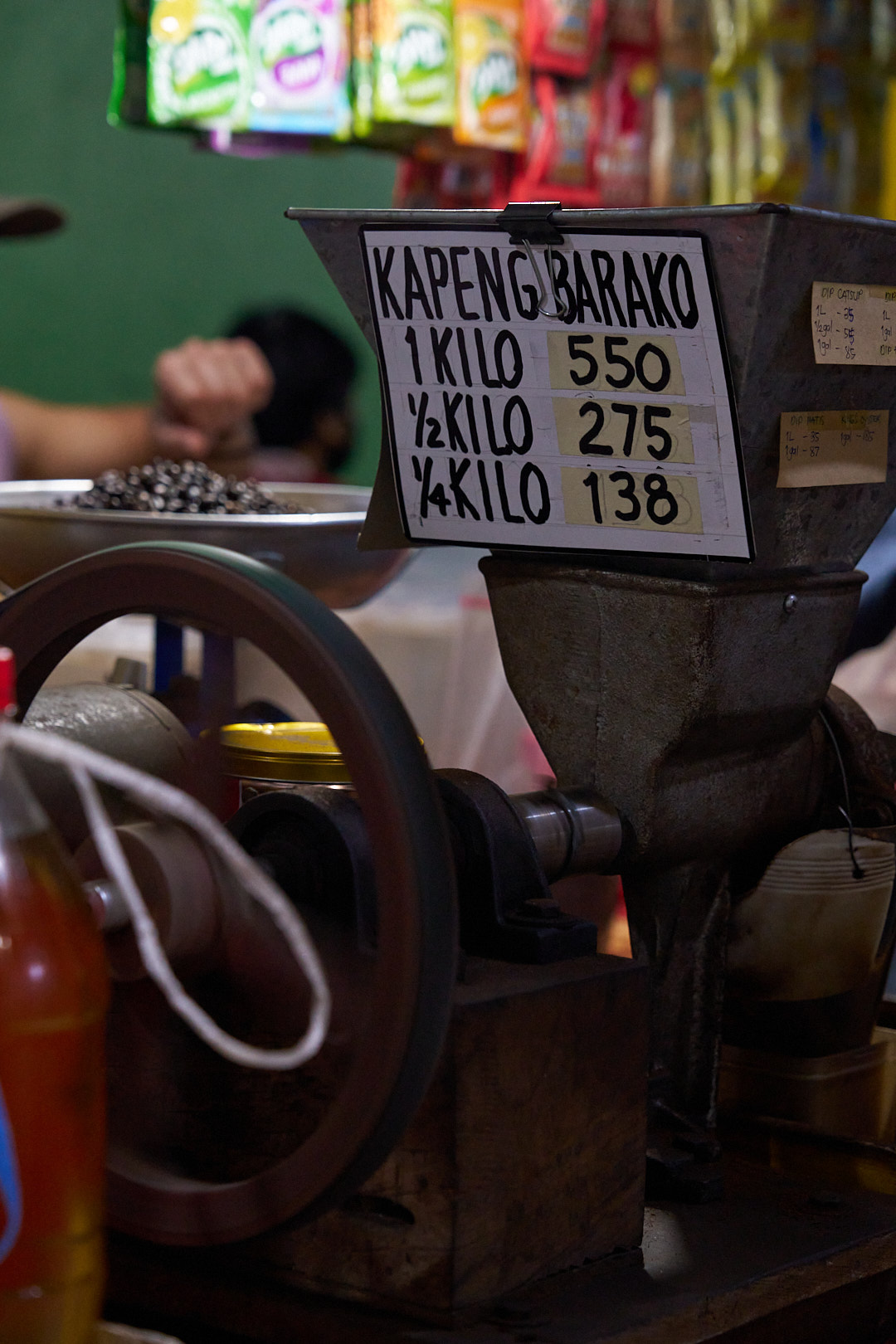
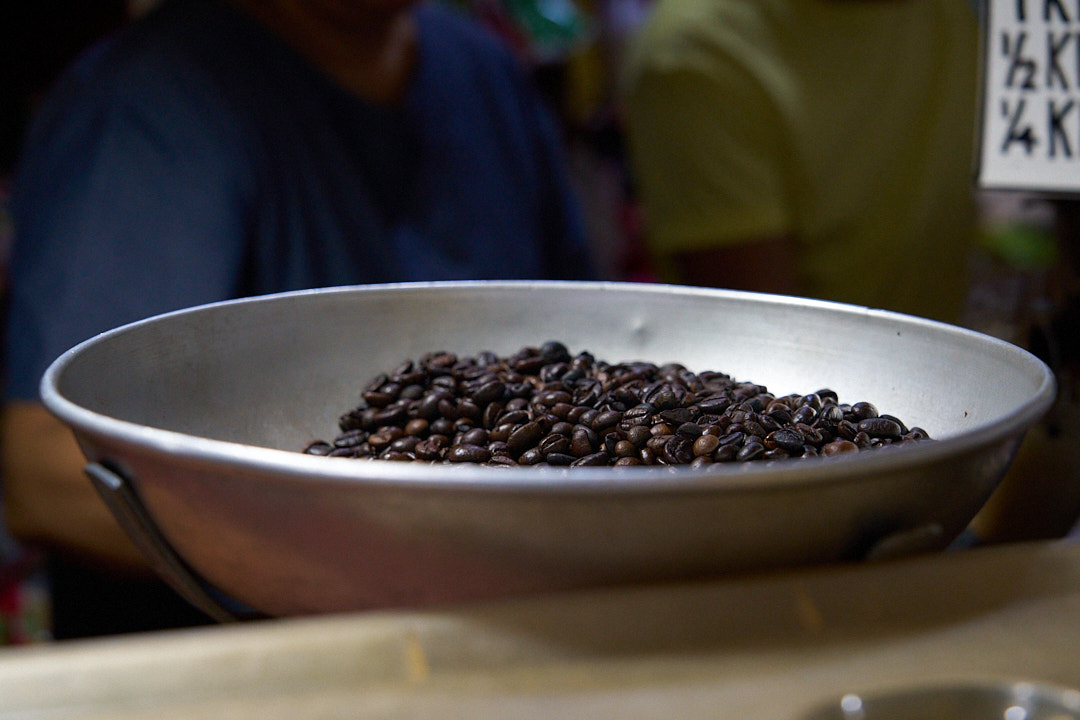
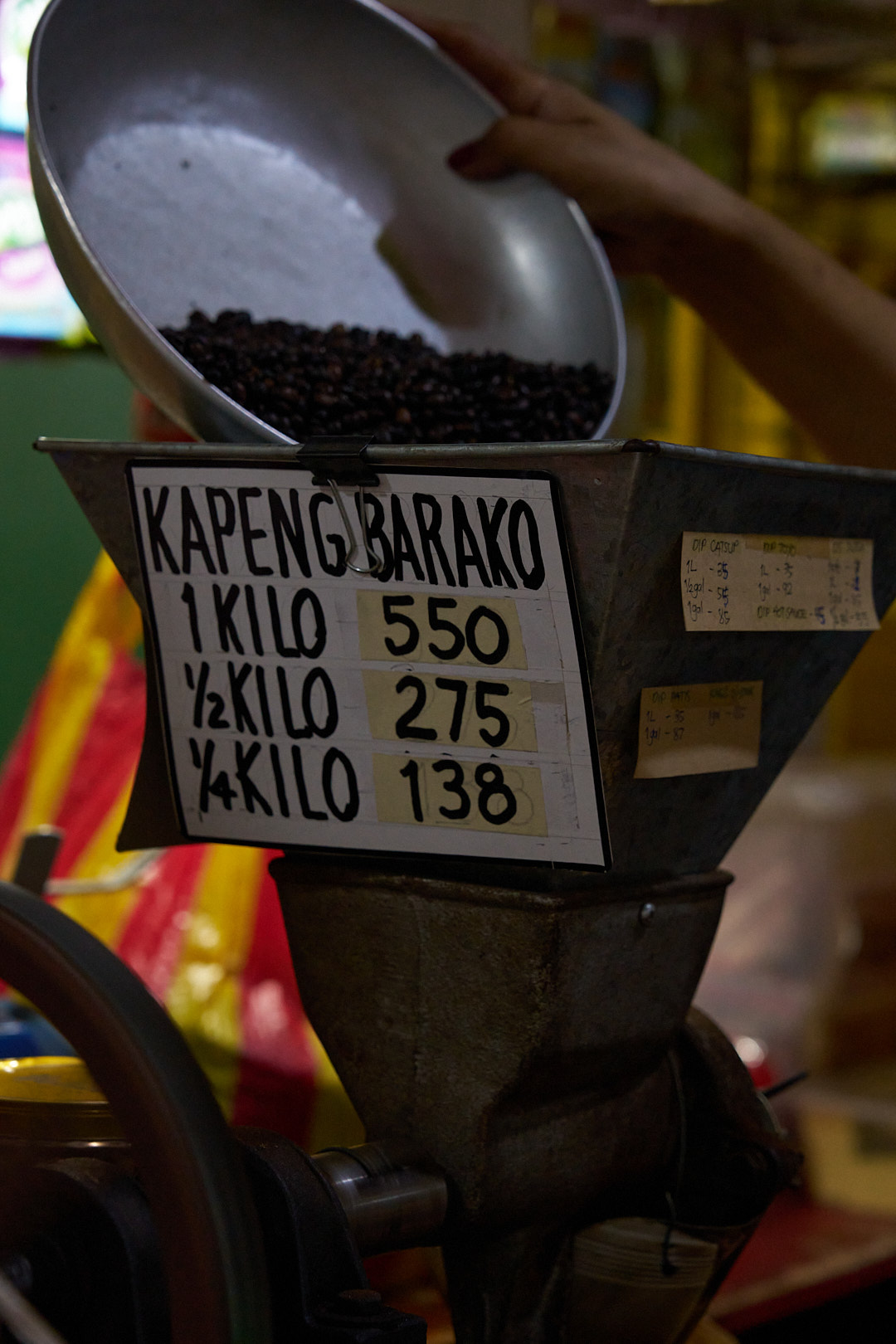
As the coffee gets ground, my mom makes conversation with the old couple while I take photographs of the coffee. Afterwards, once the ground has been packed and sealed into a bag, it is put into paper bags to be carried back to my home.
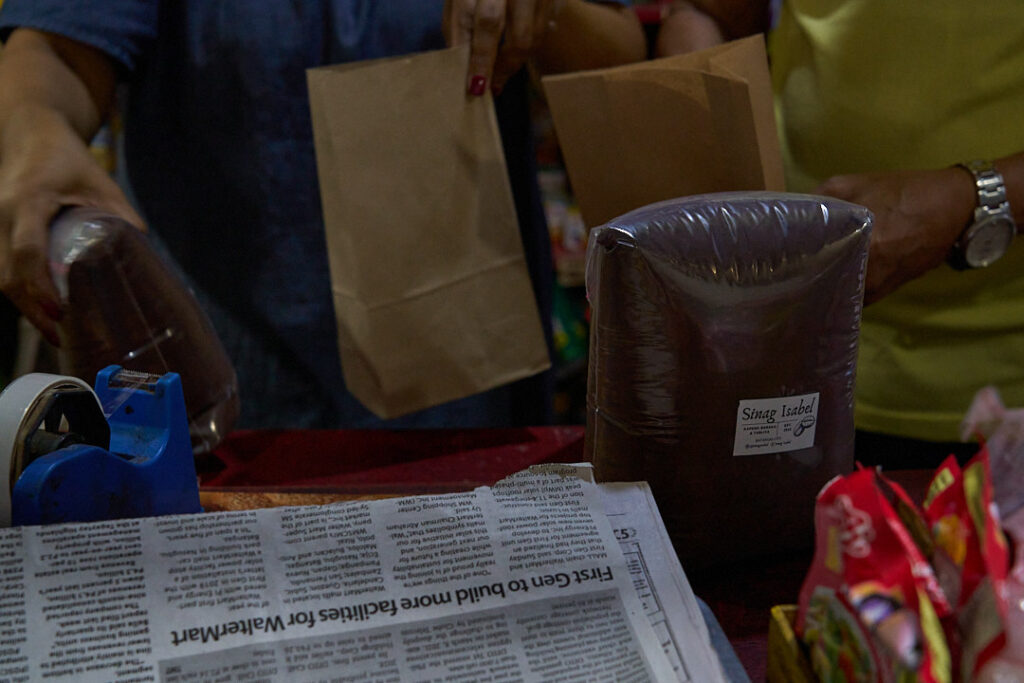
Lomi
During the afternoon, after a long day of roaming around and doing some errands for the day, my mom and I decided to eat some noodles. Now, we could’ve gone for some local pancit at the karinderia or maybe even some Japanese ramen at the mall. However, we instead went to a small, family owned business on the side of the Libjo highway named “Jocas Lomi Haus” to feast on some of their Batangas-made lomi.
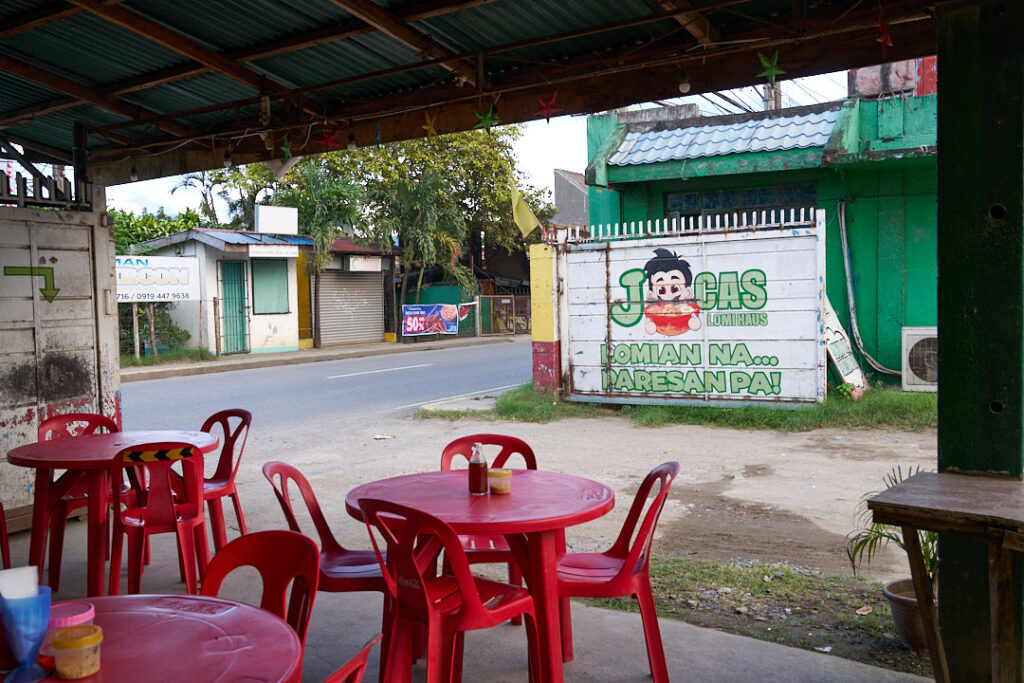
There are countless “lomihan” in Southern Luzon, let alone Batangas City but Jocas has always been the go-to for my family. We’ve always bought lomi there ever since I was a little kid back in the mid-2000s.
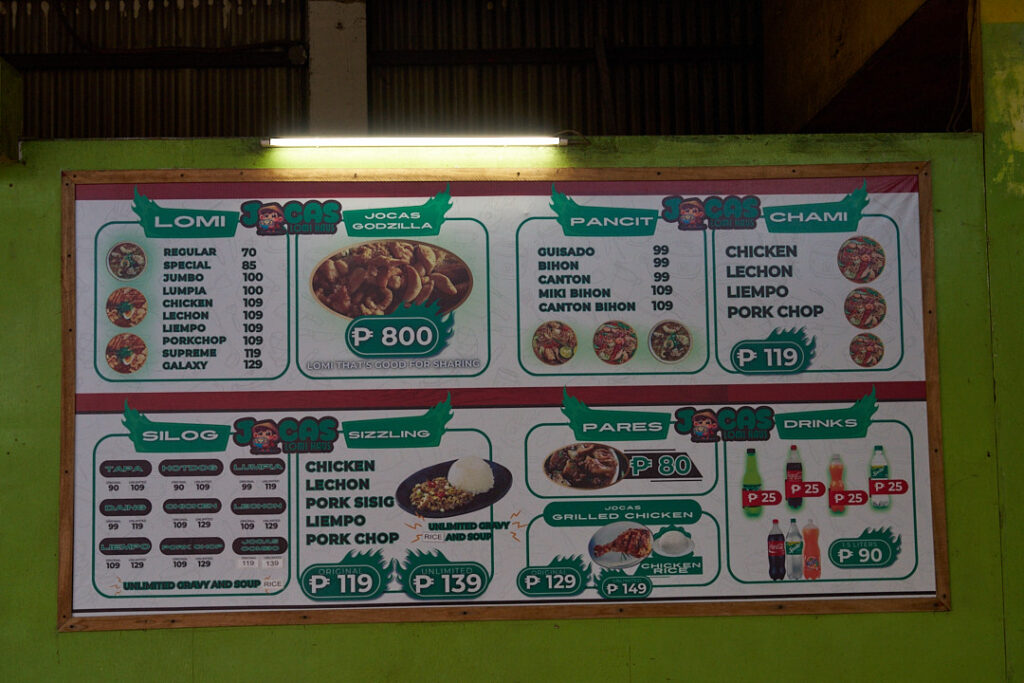
Anyways, the lomi Jocas serves is the usual lomi served almost everywhere: thick egg noodles, kikiam, meatballs, chicharon, and eggs for the most part served hot in a bowl with an option to add soy sauce and garlic.
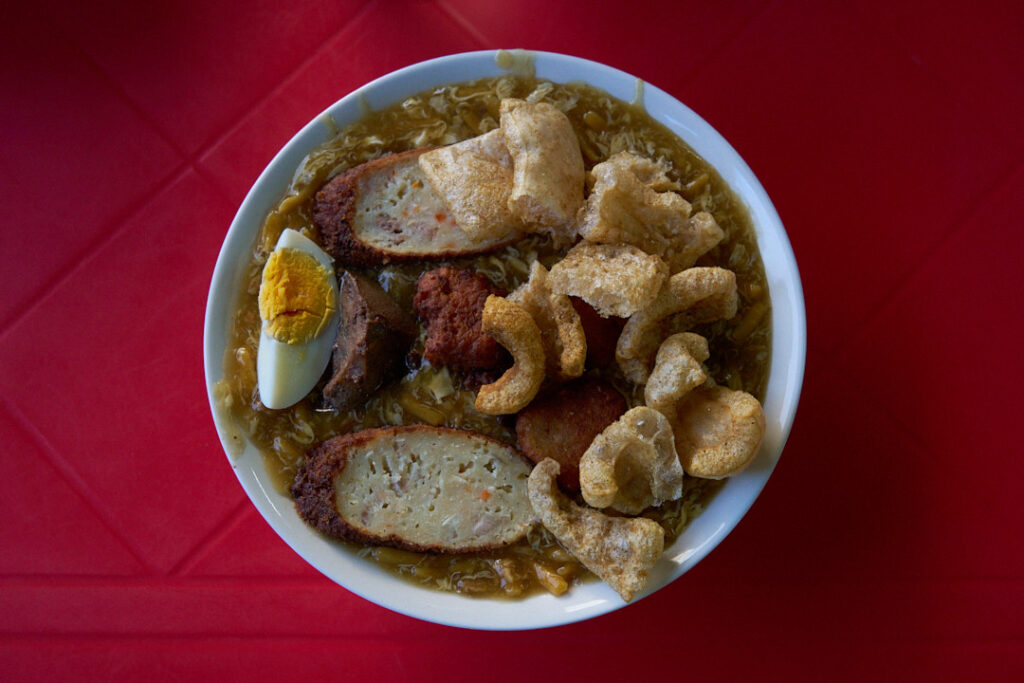
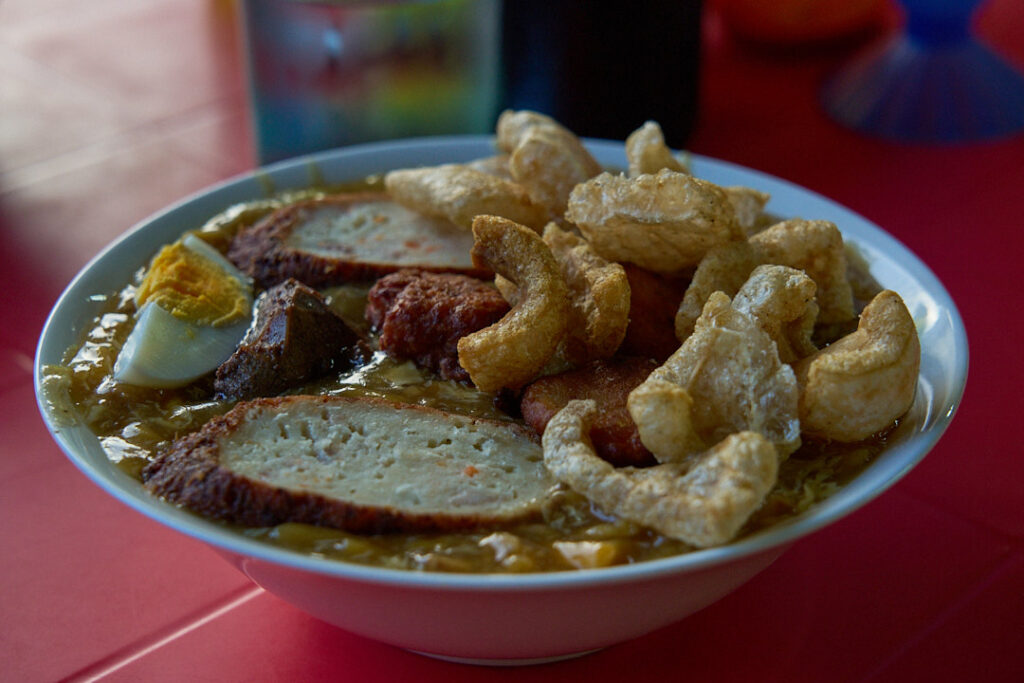
The lomi itself smells delectable and you can feel the freshness of it due to it being hot. I know I felt it since I forgot to blow on the noodles before eating it. A huge mistake on my part but I digress. If I were to describe what lomi tastes like, then I would probably say it tastes like home: warm, fulfilling, and best enjoyed with the right people beside you.
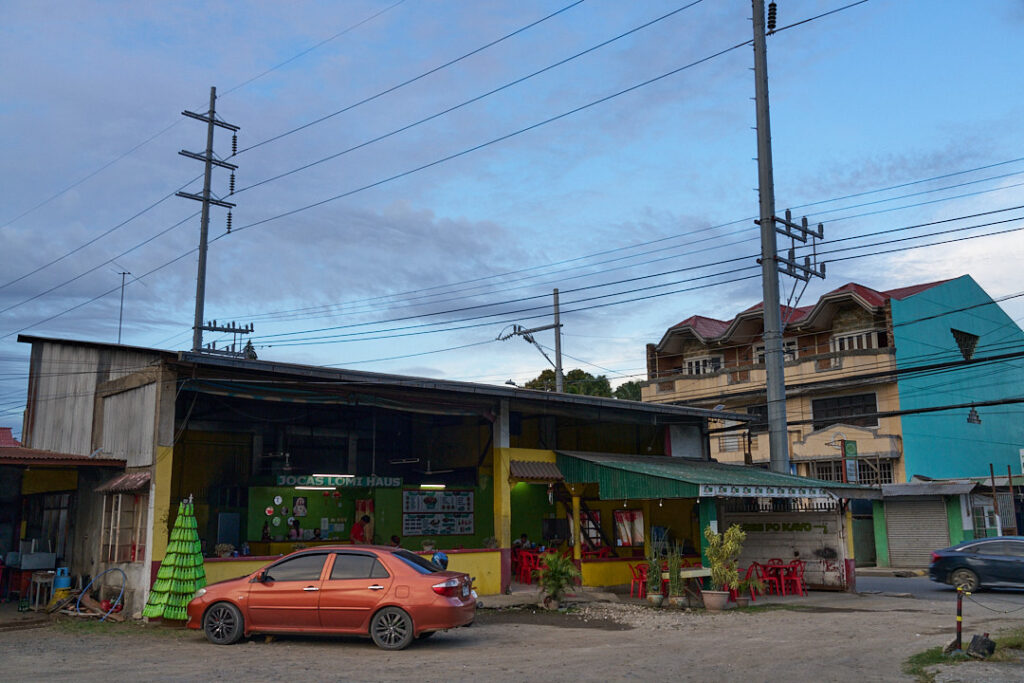
Closing Thoughts
Batangas City, the place I hail from, is most known for being the capital of Batangas and being the “Industrial Port City of Calabarzon”. It’s where I spent my childhood and the majority of my teenage years so to say that I find the place boring is an understatement. However, if there’s one thing that will always bring me back to Batangas, it’s always the food. Food always seems to have the uncanny ability to send someone back home, be it in a figurative sense or a literal sense. And, as I sit at home, eating my take out lomi at the dinner table while watching my mom make some kapeng barako for herself to start out her morning I tell myself, “Maybe boring isn’t so bad after all”.